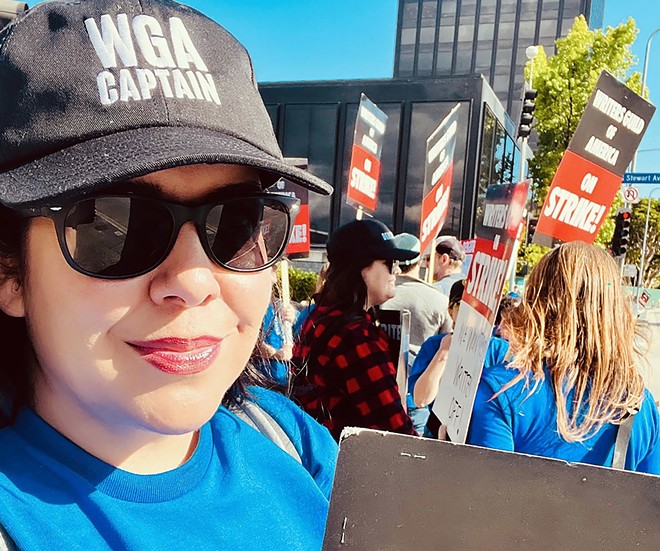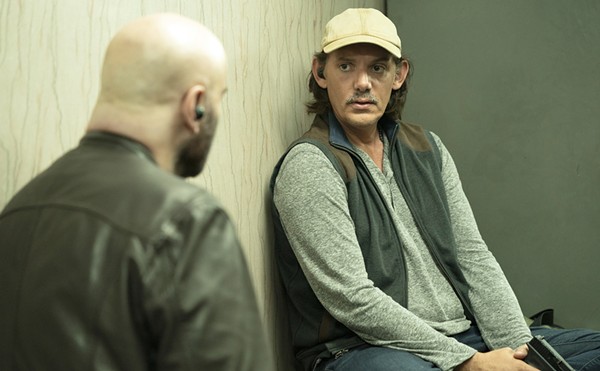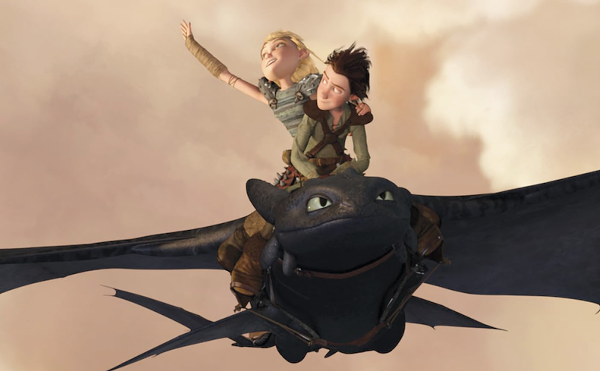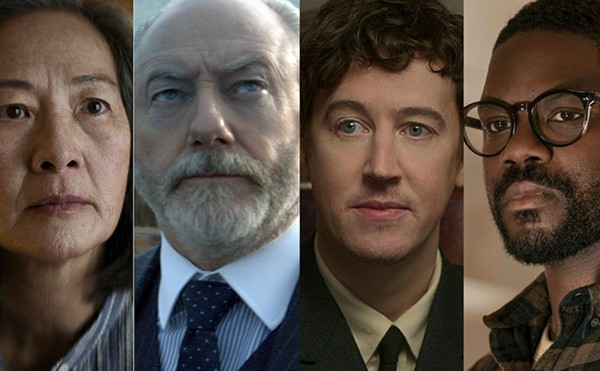
Screenwriter Marcella Ochoa (Madres) was working in the international publicity department at Sony Pictures Entertainment in 2007 when the Writers Guild of America (WGA) began a strike that lasted 100 days and cost the California economy more than $2 billion.
"It was so horrible having to drive into the studio because I felt so bad for everyone picketing outside," Ochoa told the Current during a recent interview. "Now, it's so interesting being on the other side of the strike as a writer."
It's been nearly a month since the WGA began its 2023 strike. Ochoa, who as a child attended St. George Episcopal and Locke Hill Elementary School, has been on the front lines with her fellow writers demanding salary increases, residuals from streaming platforms, regulations on how artificial intelligence can be used and more.
As a WGA captain, Ochoa manages the schedules of about 30 team members on the picket line in Southern California. She also answers questions from the members, guides them through the negotiation process and relays information about developments in the strike.
"I was honored when they reached out to me to be a captain," she said. "We're a support system for each of our team members because this is a time of anxiety."
Ochoa grew up understanding how vital labor unions such as the WGA are to working people. As the granddaughter of farmworkers, she saw how the collective voice of a community could create change by promoting economic equality.
"I come from a family who has always supported unions," Ochoa said. "I think it was embedded in our blood. It's something we've been fighting for all our lives."
We caught up with her to discuss writers' feelings on the picket lines, the strike's effect and misconceptions about what it means.
Are people on the picket line talking about how long they think this strike is going to last?
One of the hardest things about the strike is the unknown. We just don't know. Everyone is amazed at how much more solidarity and unity there is from the other unions than there was during [the 2007 strike]. It's so incredible. I think what's different this time is that social media is such a big influence. I think there's a way for us to get [our message] out there and keep it out there. It's not fading away.
What are the emotions like on the picket line? Are people hopeful? Frustrated?
It's a mix of emotions. I think it's frustrating that the studios would rather shut down Hollywood than negotiate. The statements the studios have been putting out are definitely frustrating. [The WGA] is really trying to make things work but the studios won't even negotiate on some of our biggest demands. We didn't want to strike, but we had no choice. We want to be writing our TV shows and films. We want to get back to work. Still, there's a sense of community and pride. We are strong in numbers.
Do you think people are beginning to understand that this strike is not just affecting writers and studios, it's affecting everyone?
We get it in LA and New York, but I think outside of that, people don't understand. It's not just writers who are affected when a production shuts down. Actors, costume rental stores, restaurants that supply food — everyone is affected. That's what's devastating. We don't want to see that. We're fighting for our livelihoods against these billion-dollar studios and streaming companies.
What's a common misconception about the strike?
People think all writers are super successful, and that we have tons of money. Studios are shrinking down writers' rooms and paying writers less. It's difficult for writers to maintain a livable career. This is not a hobby. This is our career. I think sometimes people forget that.
Do you think AI is going to take writers' jobs in the future?
I think that is where the industry could go. That is really scary. So, that's why we're trying to regulate it now. Studios don't even want to have that conversation. I think AI can be used as a tool and help with research, but it shouldn't write or rewrite a script. One of the things we've been saying is that AI doesn't have generational trauma. AI is not a person of color. How can it write in our specific and diverse voices? That's impossible.
As you're picketing, have any ideas come to you for a script based on the strike?
(Laughs.) Nothing has come to me yet. It's funny because some people are like, "Maybe we'll find love on the picket line." So, maybe someone will write about that. I'm sure projects will come out of [the strike] just like they came out of the pandemic. Perhaps I'll come up with something down the line, but right now my brain is mush.
Subscribe to SA Current newsletters.
Follow us: Apple News | Google News | NewsBreak | Reddit | Instagram | Facebook | Twitter
















